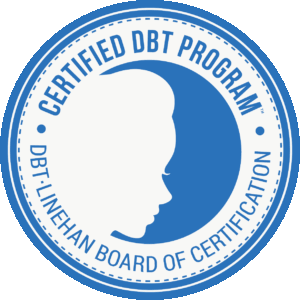Seeking therapy for depression can be a daunting yet crucial step towards reclaiming your mental well-being. However, with countless therapists offering a variety of approaches and specialties, finding the right one can feel like navigating a labyrinth. In this guide, we’ll explore key considerations to help you navigate this journey effectively. Your relationship with your therapist is paramount to the success of your treatment. Therefore, it’s essential to find someone you feel comfortable with and trust. We’ll delve into strategies for assessing rapport and compatibility with potential therapists. Moreover, not all therapists are created equal in terms of their expertise and approach to treating depression. We’ll discuss different therapy modalities and specialties that may align with your needs, whether you prefer cognitive-behavioral therapy, psychodynamic therapy, or a combination of approaches. By the end of this guide, you’ll feel empowered to make an informed decision in selecting the right therapist to embark on your journey towards healing and recovery from depression.
Credentials Matter: How to Assess the Qualifications of a Depression Therapist
When seeking help for depression, finding the right therapist is essential. However, with numerous therapists out there, it can be challenging to determine who is qualified to provide effective treatment. In this article, we will explore the importance of credentials in assessing the qualifications of a depression therapist. By understanding what to look for and how to interpret various credentials, you can make informed decisions about your mental health care.
Understanding Licensure
 One of the most critical aspects of a therapist’s qualifications is their licensure. Licensed therapists have met specific educational and training requirements and adhere to ethical standards set by licensing boards. When evaluating a therapist, inquire about their licensure and verify it with the relevant licensing board in your area.
One of the most critical aspects of a therapist’s qualifications is their licensure. Licensed therapists have met specific educational and training requirements and adhere to ethical standards set by licensing boards. When evaluating a therapist, inquire about their licensure and verify it with the relevant licensing board in your area.
Educational Background
A therapist’s educational background provides insight into their expertise and specialization. Look for therapists who have completed accredited graduate programs in psychology, counseling, or social work. Additionally, inquire about any specialized training or certifications related to depression treatment, such as cognitive-behavioral therapy or dialectical behavior therapy.
Experience and Clinical Training
Experience is a valuable asset in therapy, especially when dealing with complex issues like depression. When assessing a therapist’s qualifications, consider their years of experience working with individuals with depression. Additionally, inquire about their clinical training, including any internships or supervised practice hours completed during their training.
Specializations and Areas of Expertise
Depression is a multifaceted condition that may require specialized treatment approaches. Look for therapists who specialize in mood disorders or have extensive experience treating depression. Therapists with specialized training or certifications in evidence-based treatments for depression, such as interpersonal therapy or mindfulness-based cognitive therapy, may be particularly well-equipped to address your needs.
Continuing Education and Professional Development
The field of mental health is constantly evolving, with new research and treatment approaches emerging regularly. A therapist who engages in ongoing education and professional development demonstrates a commitment to staying current in their field. Inquire about the therapist’s participation in workshops, conferences, or additional training related to depression treatment.
The Importance of Compatibility: Matching Your Personality with Your Depression Therapist
Effective therapy for depression goes beyond just the techniques and methods used by the therapist. It also hinges on the quality of the relationship between you and your therapist. In this article, we’ll explore the significance of compatibility between your personality and that of your depression therapist. Understanding and prioritizing this compatibility can greatly enhance the effectiveness of your therapy and contribute to your overall well-being.
Building Trust and Rapport
Compatibility between you and your therapist lays the foundation for trust and rapport. When you feel a connection with your therapist, you’re more likely to open up and share your thoughts and feelings honestly. This trust is essential for the therapeutic process, especially when addressing sensitive issues like depression.
Communication Styles
Effective communication is key to successful therapy. Compatibility in communication styles ensures that you and your therapist understand each other clearly and can engage in productive conversations. Whether you prefer a direct approach or a more empathetic listening style, finding a therapist whose communication style aligns with yours can facilitate meaningful progress in therapy.
Personal Values and Beliefs
Your personal values and beliefs shape your worldview and influence how you navigate challenges like depression. A therapist who shares or respects your values can provide validation and support that feels authentic to you. When your therapist understands and aligns with your core beliefs, you’re more likely to feel understood and accepted, fostering a sense of safety and connection in therapy.
Treatment Preferences
Compatibility in treatment preferences ensures that the therapeutic approach aligns with your needs and preferences. Whether you prefer a structured, goal-oriented approach or a more flexible, exploratory style, finding a therapist who offers the type of treatment you’re comfortable with can enhance your engagement and motivation in therapy.
Personality Dynamics
Personality dynamics play a significant role in the therapeutic relationship. Compatibility in personality traits, such as introversion/extroversion, assertiveness, or sensitivity, can contribute to a harmonious and productive therapeutic alliance. A therapist who understands your personality and adapts their approach accordingly can create a supportive environment where you feel empowered to explore and grow.
Considering Cost: Budget-Friendly Options for Depression Therapy
Accessing therapy for depression is essential, but cost can often be a barrier. However, there are budget-friendly options available that can make quality therapy more accessible. In this article, we’ll explore some key points to consider when seeking affordable depression therapy options.
- Community Mental Health Centers: Many communities have mental health centers that offer low-cost or sliding scale fees based on income. These centers provide access to trained therapists who can offer effective treatment for depression without breaking the bank.
- Non-Profit Organizations: Non-profit organizations often provide mental health services at reduced rates or for free. These organizations may offer support groups, counseling services, or therapy sessions specifically geared towards individuals dealing with depression.
- Online Therapy Platforms: Teletherapy platforms offer a convenient and cost-effective alternative to traditional in-person therapy. Many online therapy services provide affordable subscription plans or pay-per-session options, making therapy more accessible from the comfort of your own home.
- University Counseling Centers: Universities with counseling programs often offer therapy services to the community at reduced rates. These services are typically provided by graduate students under the supervision of licensed professionals, offering quality care at a lower cost.
While cost can be a concern when seeking therapy for depression, there are several budget-friendly options available.
Conclusion
Finding the right therapist for your depression treatment is a crucial step towards reclaiming your mental well-being. Whether you opt for cognitive-behavioral therapy (CBT), dialectical behavior therapy (DBT), or any other modality, the key lies in finding a therapist who not only possesses the necessary expertise but also fosters a supportive and trusting therapeutic relationship. Remember, you deserve personalized care that addresses your unique needs and challenges. Don’t hesitate to reach out and explore your options until you find the therapist who feels like the right fit for you.
If you’re in the South Jersey area and seeking effective depression treatment, don’t hesitate to contact us at DBT of South Jersey. Located at 1103 Sheppard Road, Voorhees, NJ,. Our compassionate team is dedicated to helping you navigate your journey towards healing and emotional wellness.




